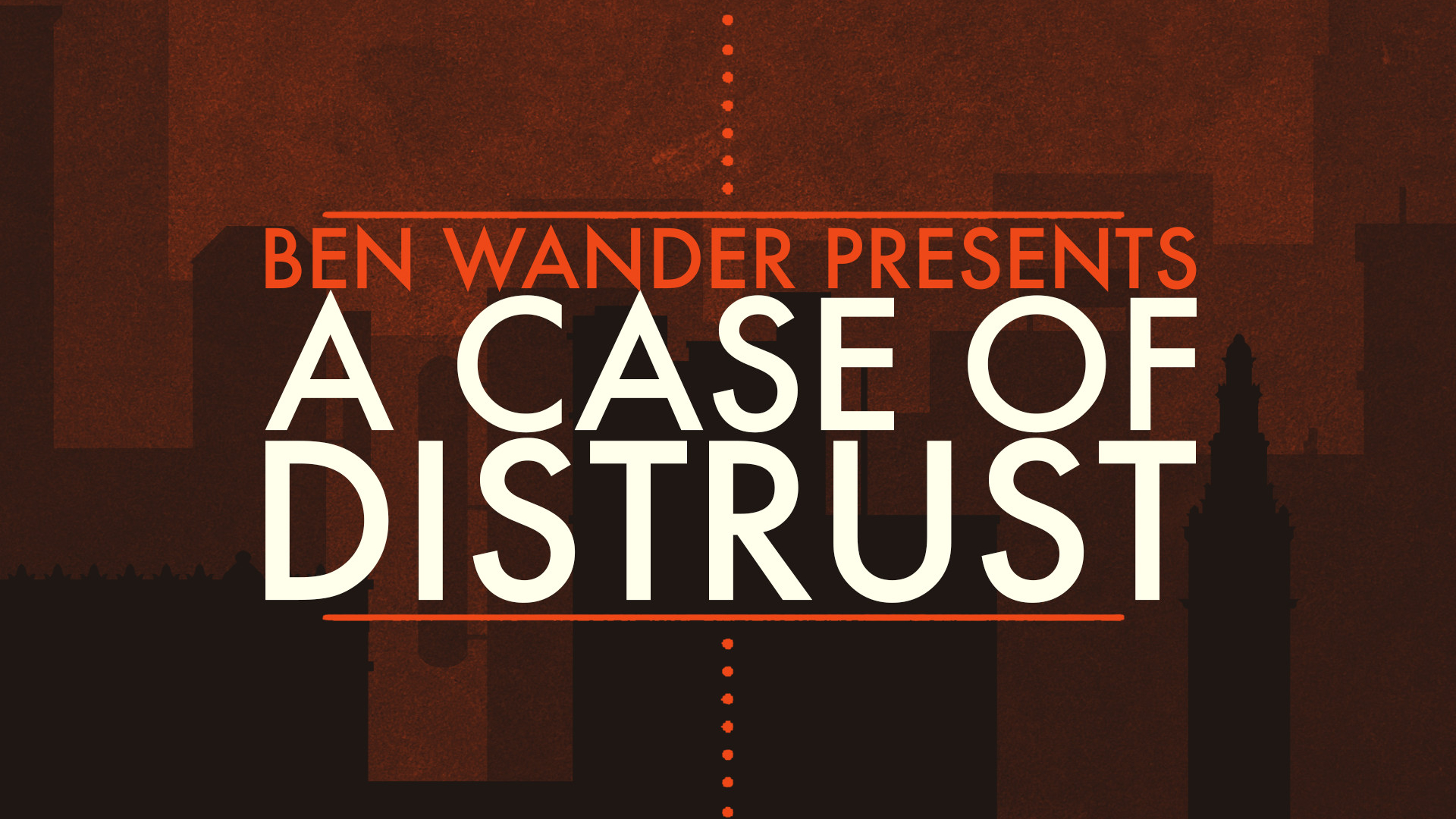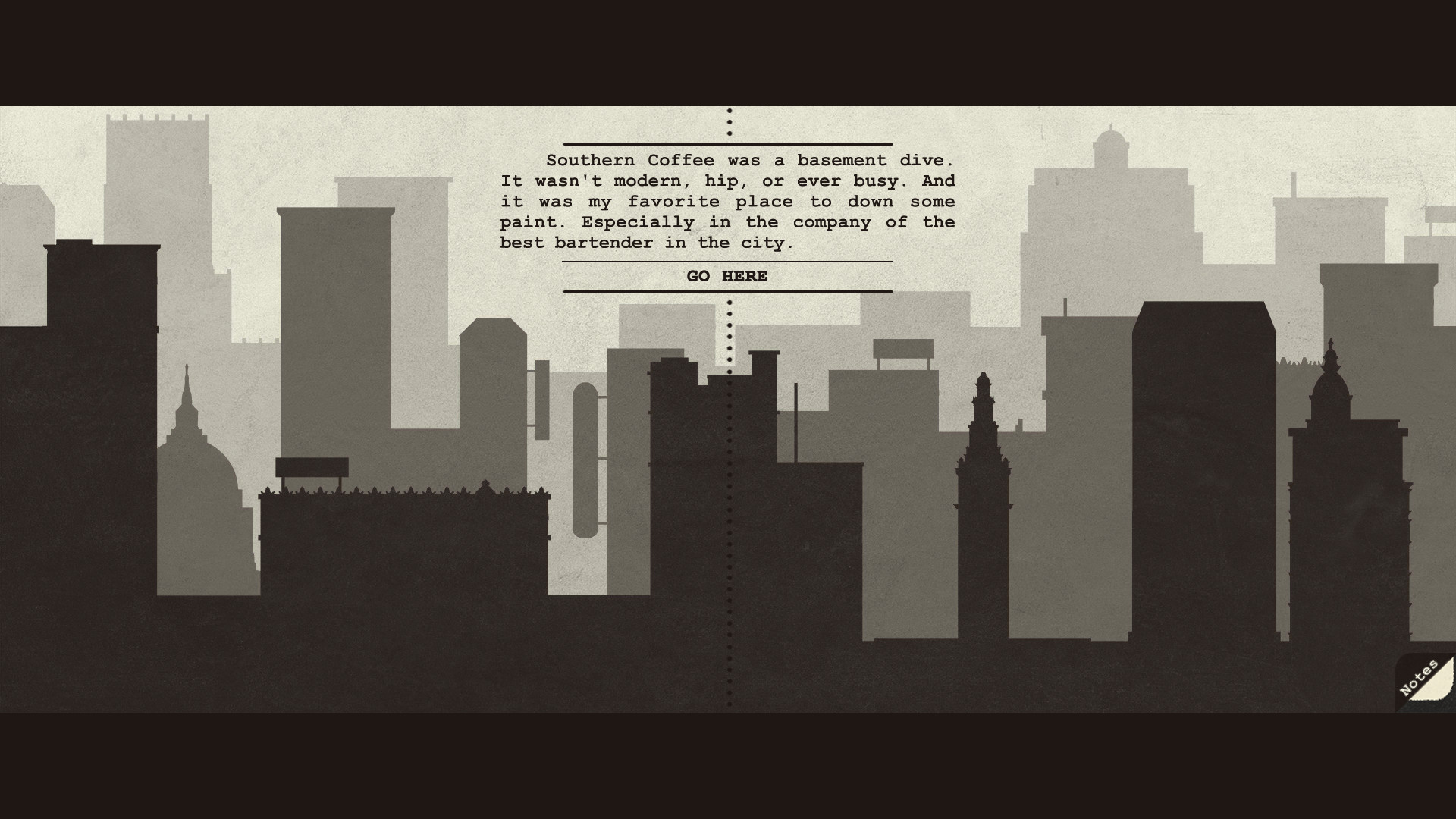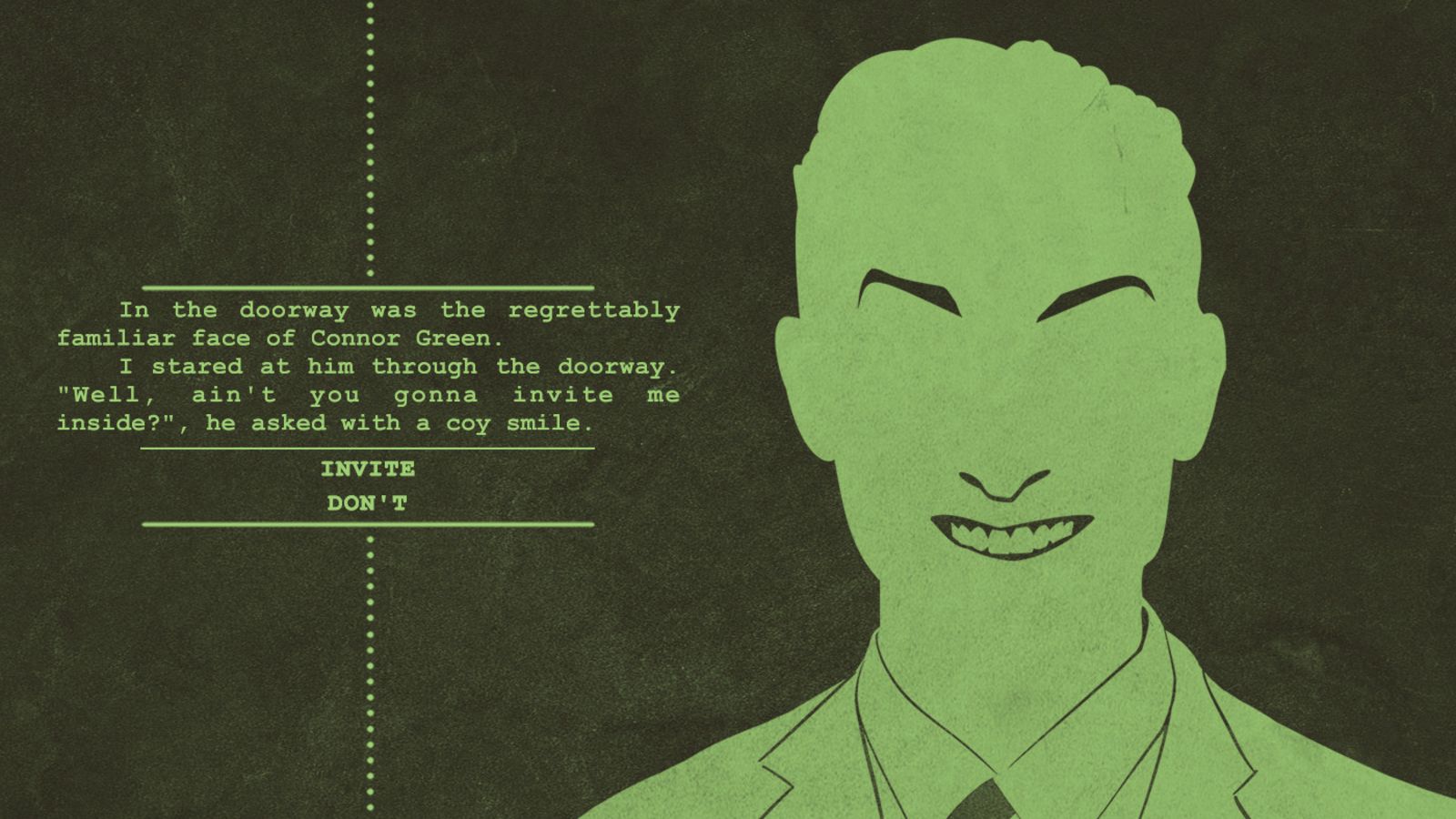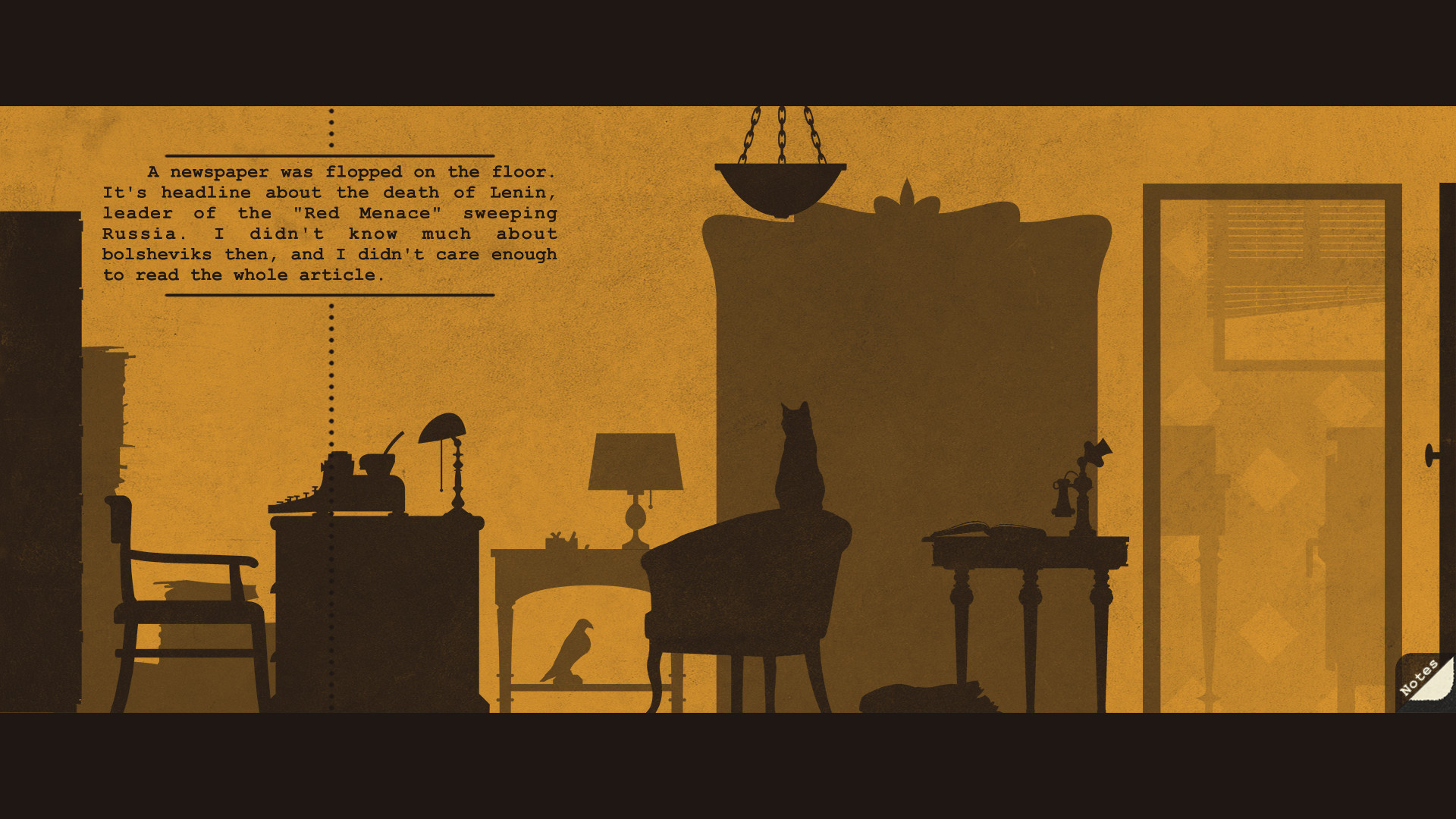2018 is already off to a great start for indie games, and one of the biggest reasons is A Case of Distrust. Developed by The Wandering Ben, A Case of Distrust is a hardboiled, murder mystery noir visual novel. But this isn’t your waifu’s visual novel – there’s no scantily-clad melodrama here. Instead, Ben Wander has taken a different approach.
The game presents itself with a unique style. Its art is minimal, featuring silhouettes of characters and flashy animations. The story is dripping with classic hardboiled detective trappings, inspired by the likes of Dashiell Hammett and Raymond Chandler.
I reviewed the game and give it a 4 out of 5, myself writing on the level of the greatest literary critics in history. Trust me on that.
Beard Oil is the Key
Just about the only thing that bothered me about A Case of Distrust is that its gameplay isn’t great. The story is fantastic, however the gameplay is borderline terrible. It consists of dragging your cursor across the screen, and clicking when items get highlighted. Another major component involves picking items on a list until the character you’re talking to tells you something to move the plot forward.
It’s not unbearable, just dull. It’s hard not to ask yourself why this has to be a game, that maybe it’d be better as a short film or a novel. I shared my feelings with my colleagues. Joanna Mueller told me to leave her alone and Nic Reuben said if I rubbed his beard I’d get the answer. That’s when it hit me: there’s more to a video game than just straight gameplay.
When we think of video games, we tend to only think gameplay. That’s what separates video games from any other medium. The first video games were nothing but gameplay – pilot a ship around some asteroids, jump over some barrels with a guy in a red hat, hit a white square back and forth between two other white squares. That’s what gamers expect from video games – gameplay above all else. But what if I told you this way of thinking was outdated, rigid, and above all, wrong?
Thinking Beyond Gameplay
We should define video games beyond pure gameplay terms. No video game is built entirely on gameplay alone, not even those aforementioned first video games. Asteroids was about destroying asteroids and keeping the pilot of your ship alive. Donkey Kong was about Mario rescuing Peach (any of your corrections about how it was actually Jumpman and Pauline further prove my point). Pong was about beating your opponent in a one-on-one sport. None of these are exactly Shakespearian, but they set the context for your actions in the gameplay.
And all of that is just doesn’t take into account the music, sound effects, graphics, art, animations. These elements form the games you love (and hate) together – there’s no one magical element. Sure, gameplay or story might be the most important aspect for you or me, and it might be the only one we think about. It all comes together to create one experience you can’t get anywhere else. Sure, films can have music, art, sound effects and many other elements, but no other medium can combine them in a way video games do.
That’s why I don’t mind that the gameplay in A Case of Distrust isn’t exactly stellar. Sure, dragging your mouse cursor around environments or going down a literal checklist with suspects isn’t the most entertaining thing in the world. Throughout my time with the game, the worst feeling I ever dealt with was boredom, not frustration or anger. Even then, it was brief fling, because I was instantly pulled back into the experience by the writing, the animations of the silhouettes, the music, and everything else that makes the game up.
This isn’t Your Story
Above all else, A Case of Distrust isn’t your story. Having influence over the plot or being able to miss key clues would increase player involvement. That’s not what this game is about. It’s about the story of PC Malone. The player is merely an observer of that story, not the driving force.
That’s taboo for a video game these days. Most of us expect ourselves to be the star of the show, not some made-up character. That’s what makes this game so compelling, and why it has to be a game. Your job is to sit back and watch the plot unfold through Malone’s eyes. If this were a novel or a film, you’d be a third party audience member. But as a video game, however limited your input is as the player, you get to experience the world and the story through the protagonists eyes, directly watching events unfold as they happen as if you were there. That’s not something any other medium can do as effectively.
There’s a lot to love about A Case of Distrust, and I eagerly await The Wandering Ben’s next game. If you want to see for yourself what makes the game so great, why not check out our video review of the game? If you like what you see, you can also subscribe to Cliqist’s YouTube channel. I’m better at making videos than I am writing articles, I assure you.






